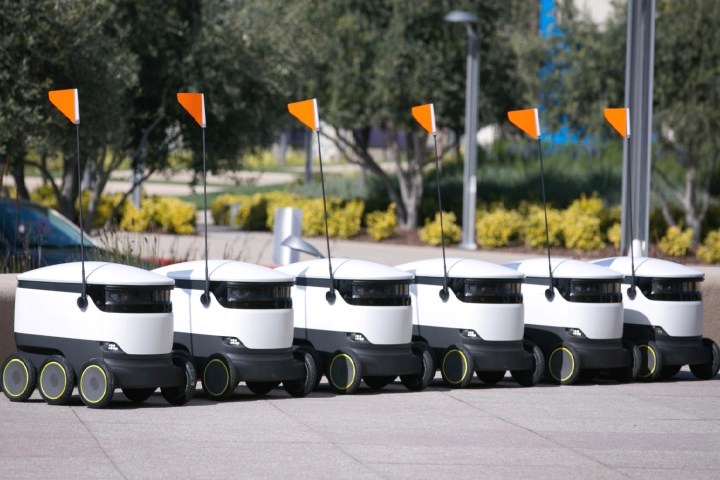
Whether it’s airborne delivery drones like Amazon’s Prime Air initiative or ground-based delivery robots, we can honestly say that, for the first time in our lives, topics like “the future of conveyance infrastructure” carry genuine interest. It’s apparently not just us, either. Plenty of people — investors included — are excited about this next phase in delivery. To that end, robot delivery company Starship Technologies recently announced that it has secured an additional eight-figure round of funding to expand its growing fleet of six-wheeled robots.
“Starship has raised an additional $25 million dollars to take its service to market,” Ahti Heinla, co-founder of Starship Technologies, told Digital Trends. “The funding comes as we announce the full commercial rollout of services in the U.S. and Europe. Starship is already the world’s leading provider of autonomous delivery services, and we plan to capitalize on that position.”
The generous cash injection came from existing investors Matrix Partners and Morpheus Ventures, along with extra funding from Airbnb co-founder Nathan Blecharczyk and Skype founding engineer Jaan Tallinn. The news follows soon after the global introduction of the company’s autonomous delivery bots, which are now deployed on college campuses and in neighborhoods around the world. The money will go toward greatly expanding the fleet — which is hoped to exceed 1,000 robots across 20 work and academic campuses, as well as various neighborhoods, in the next year.

That is not the only bit of good news for Starship. To help it reach its goal, the company announced its new CEO, Airbnb veteran Lex Bayer. Heinla, the current CEO, will instead step into the chief technology officer position to make way for Bayer.
“Lex Bayer joins to strengthen the leadership team for the next stage of the company’s journey,” Heinla continued. “He has a wealth of experience in scaling tech companies and bringing revolutionary ideas to market. We’re looking forward to working with him as we prepare to scale our service across the globe.”
Considering that Starship Technologies only started in 2014, it’s amazing to see how far it has come in a few short years. With the promise of increased deliveries from the company’s autonomous robots — which navigate using a plethora of smart sensors, cameras, and GPS tech — we can’t wait to see what the remainder of 2018 and into 2019 will hold.
Editors' Recommendations
- So THAT’S why Boston Dynamics retired its Atlas robot
- Dog-like Spot robot gets a gig to scare wildlife
- Autonomous delivery robots at center of bomb scare ‘prank’
- SpaceX gets big hint from FAA on next Starship launch opportunity
- Amazon makes it harder for non-Prime members to get free delivery


